
The attacks on Ukraine's energy sector have not stopped at all. The restoration of facilities is much better than a year ago.
How would you assess the preparedness of energy companies for the heating season?
If we compare the preparations for winter, the situation is now objectively much better than a year ago. If I was moderately pessimistic then, now I am moderately optimistic.
The official figure announced by the Minister of Energy at a meeting of the Anti-Crisis Energy Headquarters in Zaporizhzhya is 17.6 GW [of generation]. This figure means that we are ready even for a cold winter.
We are doing well with coal reserves. Gas is being pumped in — there is still not enough, but there is a trend that shows that we will most likely be ready for the season. It was a huge challenge for the new management of Naftogaz, a difficult task to prepare gas reserves. They coped with it, we can already say that.
Therefore, my forecast is moderately optimistic. Of course, it cannot take into account what attacks and damage there will be — we cannot predict that for sure.
The Russians have started attacking power generation facilities again. In particular, there have already been power cuts in the Kyiv region in connection with this. Is our energy system resilient to the Kremlin's destabilisation plans?
The attacks on the energy sector have not stopped at all. It's just that when everything is working in most of the territory, this news is not so popular. On 8 September, there was an attack on one of the power stations near Kyiv. This caused a wave of information and a lot of news. Ten days earlier, there was a much more unpleasant attack on other generating facilities, which caused more trouble, but there was no publicity. The public response is in no way commensurate with the threats that exist and what is happening. The information field often resonates in unexpected ways.
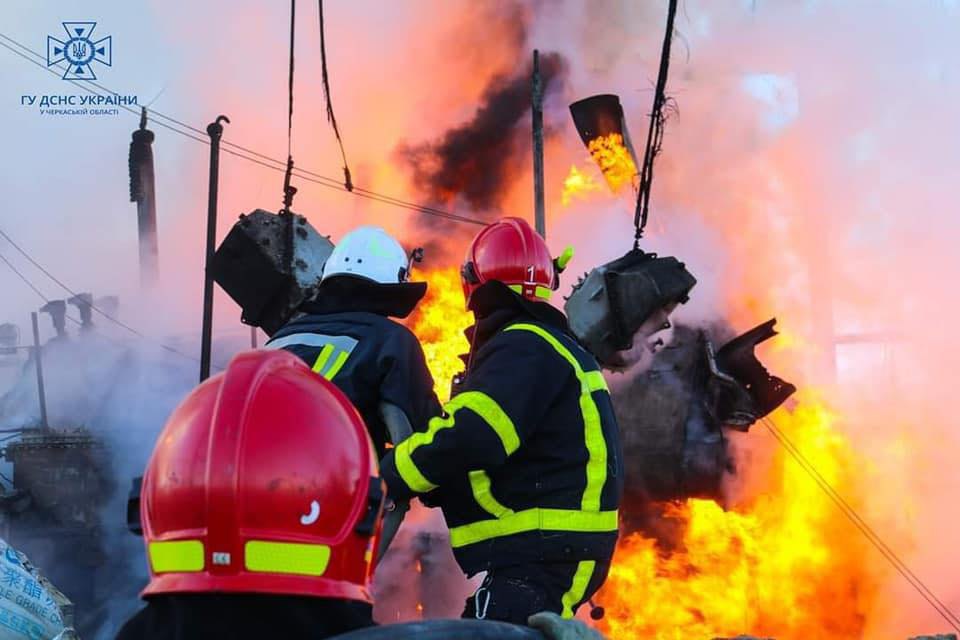
All this time, strikes were taking place, followed by operational recovery and preparation: improving protection, fortifications, working with air defence systems, and improving electronic warfare tools at virtually all energy facilities.
Ukrainian power engineers have once again demonstrated that the pace, quality, and depth of restoration are sometimes so impressive that our foreign partners are amazed. They do not understand how we managed to restore certain severely damaged facilities.
The whole complex creates stability. On the one hand, we have restored much more generation capacity, and on the other, we are much better protected.
Sometimes completely fantastic stories happen. Two weeks ago, during one of the attacks, five drones hit a high-voltage substation. The protection worked 100%. That is, after the attack ends, the equipment turns on and continues to work. The protection works, and people already know very well what to do in order to restore power as quickly as possible after attacks, if something is wrong, then [to repare] equipment as quickly as possible, and so on. This is much better than a year ago.

There are many complaints about corporate governance in state-owned companies.
Can we expect the same level of investment in energy system sustainability and equipment procurement as a year ago, when USAID-supported projects were being implemented?
To be honest, international aid, unfortunately, did not have a significant impact.
There is one aspect that has been very useful, but it must be understood that from the moment we requested something (for example, certain types of equipment) to the moment we received it, at least a year and a half passed. Of course, we couldn't wait for it: people need power today, we can't wait. Most of this equipment began to arrive when we had already dealt with the initial consequences. It was partly thanks to this assistance that we were able to build up the equipment reserves that we now have.
I would say that there is now a serious problem that has nothing to do with the existence or non-existence of USAID, but rather with the fact that there are many complaints about corporate governance in state-owned companies.
We can look back at the history of this issue. There have been many statements from supervisory boards that they are under pressure, that certain changes are being made under pressure from state bodies in companies that should be managed independently, and so on.
Foreign partners, Europeans who provided this assistance, often say that they are not ready to support certain aspects at all now. They are not ready to support certain state-owned companies. We have no trust. And this problem is much bigger than the liquidation of USAID.
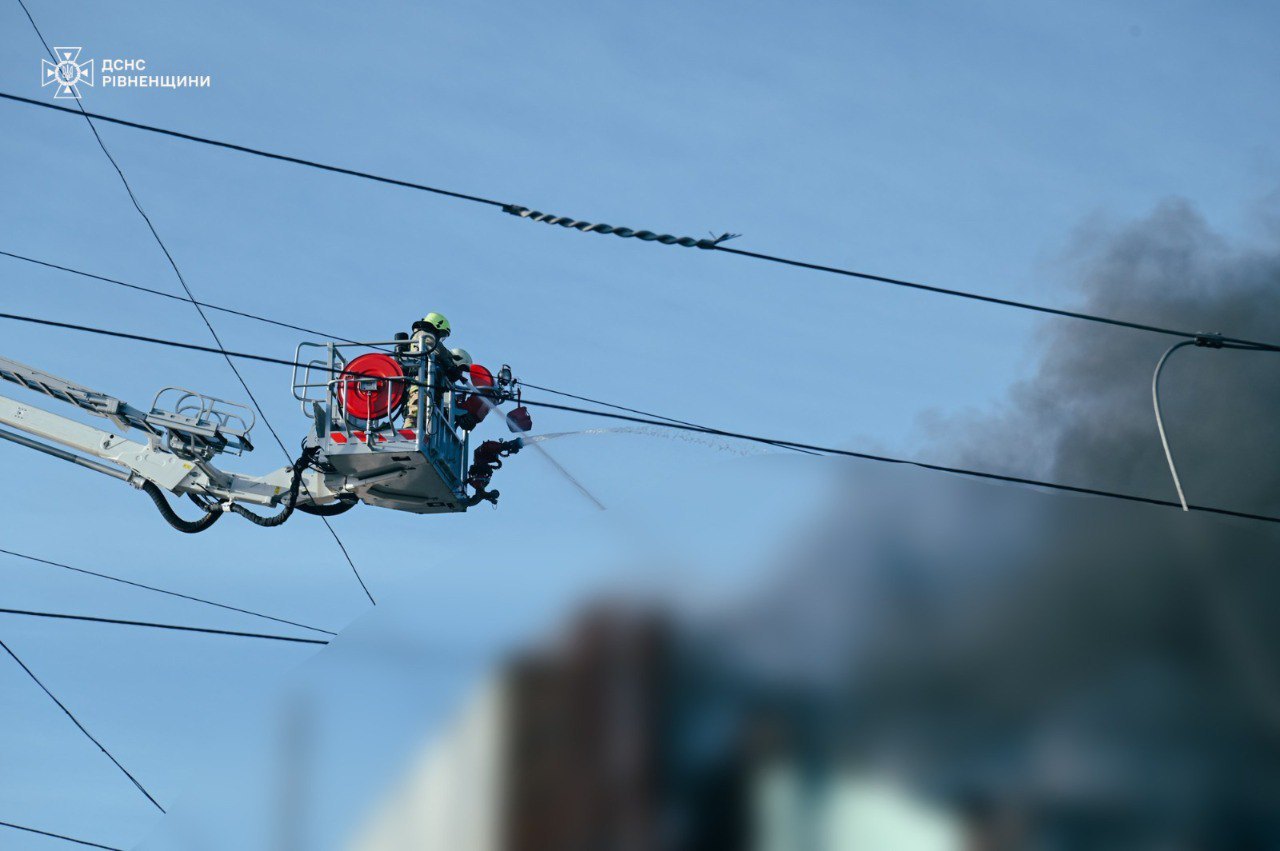
In any case, most of the funds came in the form of preferential loans. If we evaluate all grant money, its share compared to preferential loans provided to state-owned companies is 20%.
And now we have lost both windows. We have only one company left, Naftogaz. For some time, Ukrenergo and Ukrhydroenergo received quite large funds for restoration, but now only Naftogaz remains as a window through which money actually comes in.
Due to changes in corporate procedures, Ukrenergo is in technical default, so they cannot be given money. As a result, only Naftogaz is now receiving money to purchase gas.
This is important, critical and very good that it works, but we would still like more. We would like to see recovery.
Many companies are simply without leaders right now. The gas transmission system operator does not have a chairman of the board, and neither does Energoatom. Things seem to be getting back on track at Ukrenergo, where a chairman of the board has been appointed, but there is a lot to sort out there [on 26 September, the supervisory board dismissed Ukrenergo chairman Vitaliy Zaychenko. Oleksiy Brekht, who previously headed the company from September 2024 to June 2025, will temporarily perform the duties of the chairman of the board]. Ukrhydroenergo has no chairman. This creates a lot of tension, a situation where partners significantly reduce direct aid and preferential loans are not coming in. This is a problem.
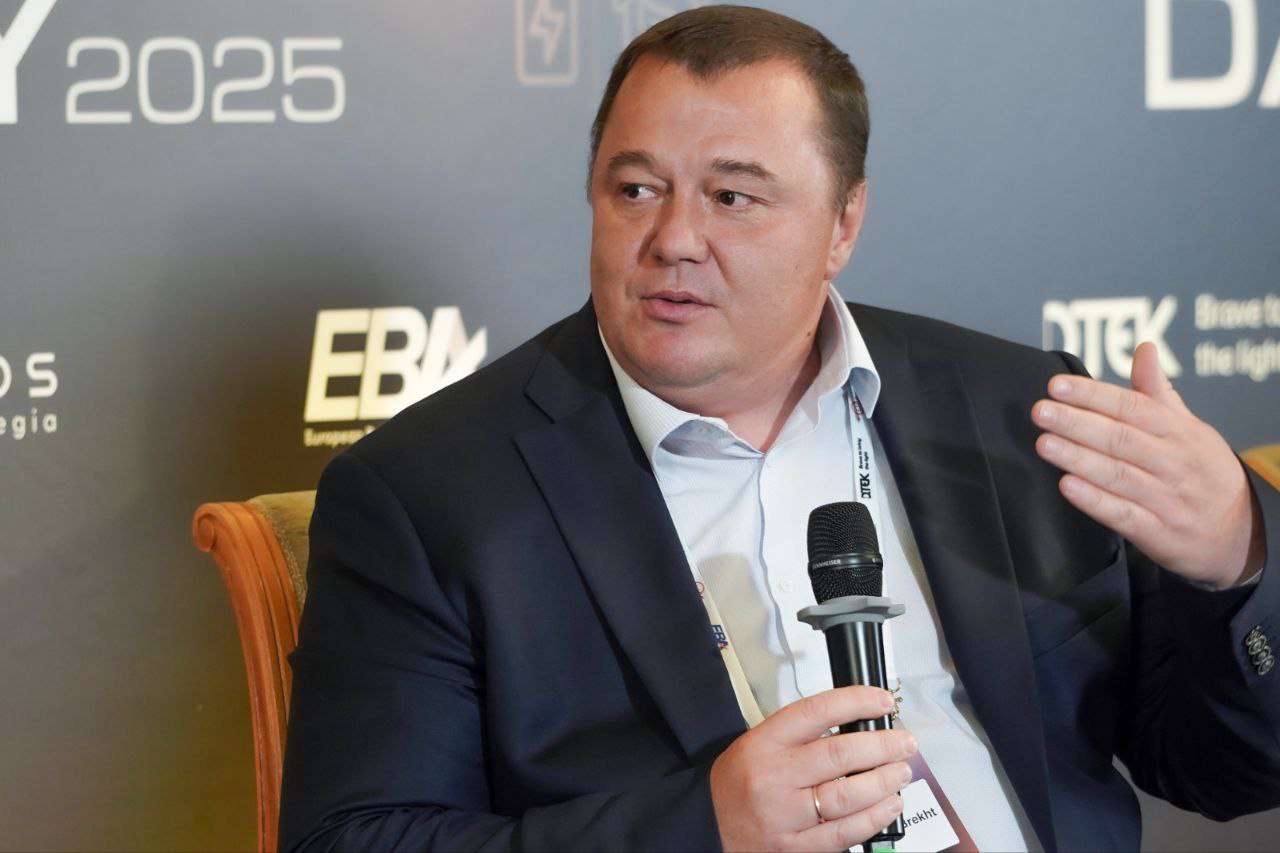
Why do you think the quality of state-owned company management systems is deteriorating? What needs to be changed to avoid irreversible consequences in the energy sector?
My overall impression is that the state still does not understand what corporate governance is and why it exists. The level of understanding is such that certain procedures, which are recognised in the civilised world as fundamental to the management of state-owned companies, are simply incomprehensible: why is this so, why do they do it this way? As one member of parliament said: "How can the deputy prime minister not call the chairman of the board and tell him what to do?"
Unfortunately, this is a common situation, which is very unpleasant tactically at the moment, because it limits a certain number of large state-owned companies in their ability to attract outside help. There is no chairman of the board — there is no one to negotiate with. And we are talking about hundreds of millions. And in each case, the partner wants to see a certain consistency in what will happen next. A certain consistency in management.
A year ago, we talked about the crisis in the supervisory board of Ukrenergo, which was eventually resolved. A supervisory board was appointed, and it selected a new chairman. This happened, but we lost a year. And in many other companies, this did not happen. And that's even worse, because it means that everything continues to hang in the air.
I think it would be right to ask this question to the Prime Minister or the Minister of Economy or Energy, who are directly responsible for this, so that the correct procedure is followed. In my opinion, unfortunately, people still do not understand what a corporate governance system is and how the owner, in the person of the government, should interact with the companies it owns.

After the Ukrainian Armed Forces' strikes, there was a shortage of petroleum products in 20 regions of the Russian Federation.
Russia uses energy as a weapon, but the Ukrainian Armed Forces are also undermining the Russian Federation's energy capacity by attacking oil refineries. How do you assess the effectiveness of these actions and their impact on the Russian Federation's budget?
The strikes are very effective and well planned. The targets selected for attack in recent months have been planned with surgical precision. A great deal of analytical work went into this planning. The targets selected have a significant impact on the operation of Russia's oil refining and oil transportation complex.
On the other hand, I would not want us to overestimate the impact of these strikes, at least for now. The media claims that Ukraine has destroyed 20% of oil refining capacity are untrue. We have successfully attacked 20%, but that does not mean that they have been destroyed and will not work. Moscow has engineers too, just like we do. More than a hundred missiles hit our Kremenchug oil refinery, but it stubbornly continued to recover and produce certain types of products. Therefore, we should neither overestimate nor underestimate the situation. They are already hurting.
I want to say "thank you" to the people who planned this, because they also chose the right time: August and September are the months when Russia has always had a natural shortage of high-octane petroleum products. They do not have enough capacity to cover them completely.
When these attacks began, oil companies rushed to the Kremlin to ask for petrol prices to be raised. They were told "no". Of course, they have hardly raised prices at all, 5-7% — I think this is just a warm-up for now. They simply stopped transporting petrol to regions where it is expensive to deliver.
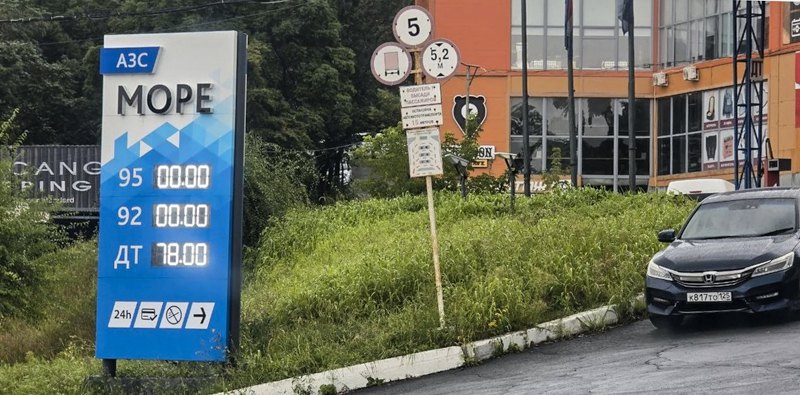
As a result, many people began to wonder why the Far East suddenly ran out of petrol. It is simply expensive to transport it there. The second place where it is expensive to transport petrol is Crimea. It also has limited capacity and expensive logistics. Then our forces continued their strikes on carefully selected targets, which effectively limit consumption in southern Russia.
Now they have a real shortage of light petroleum products, i.e. 92 and 95 petrol, and even with 73, which they still use, certain questions are beginning to arise. They have a shortage of these types of petrol in 20 regions. That is already a third of Russia as a whole, mostly large regions. Is this good for us? Absolutely. Because they are not receiving the added value and taxes from these products.
The second aspect is the direct impact on the transportation of oil and, to a certain extent, gas. The strike on Ust-Luga was well planned and successful, significantly damaging the gas condensate processing plant.
I estimate the total losses at several billion dollars. And the losses from the fact that they did not ship oil and did not sell petrol cannot be estimated at this time.
There is another important aspect. When their shipments are delayed, it means that at the other end of the oil's journey, some plant is left without oil. In other words, the tanker from Russia did not arrive on time. The plant owner understands that they will have to buy oil somewhere else at a much higher price in order to load the capacity, or simply stand idle. Neither option is a good scenario.
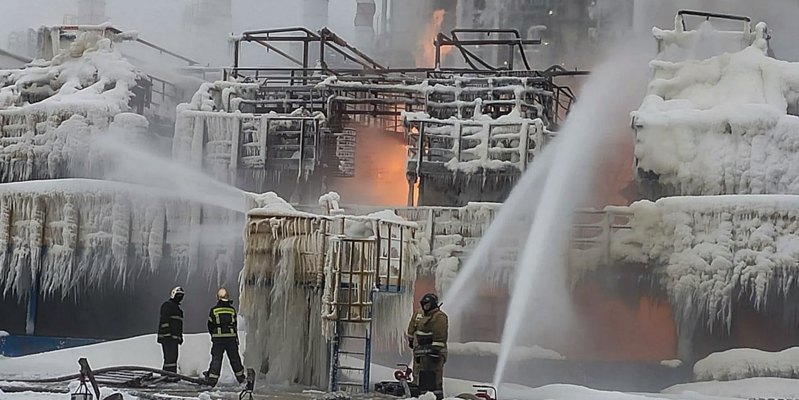
Next time, these owners will consider that the discount should be even greater. They will begin to factor in the risks of delayed delivery. They have long factored in sanctions, and now they are also factoring in late delivery. This is another discount that also affects the flow of money that Russia can use to wage war.
There is no real effect of sanctions on the transportation of Russian oil
What measures at the international level can most effectively reduce Russia's ability to finance the war through energy trade? A complete refusal to consume Russian energy in Europe? A refusal by China and India to purchase oil under pressure from American tariff policy? Tighter sanctions?
Europe accounts for 5-6% of oil supplies and small volumes of gas supplies — 27-32 billion cubic metres. Unfortunately, they do not have much influence. It would certainly be a pleasant bonus for us if Europe completely refused (Russian energy resources — ed.). Technically, Europe can do this. This is an important aspect.
When people start talking about Hungary not being able to refuse, it is worth knowing that the Hungarian state-owned company MOL owns two oil refineries: one in Hungary and the other in Slovakia. These enterprises are connected by an oil pipeline to the Adriatic Sea via Croatia. There is enough capacity there to supply themselves and even send some to Austria — this is a possibility.
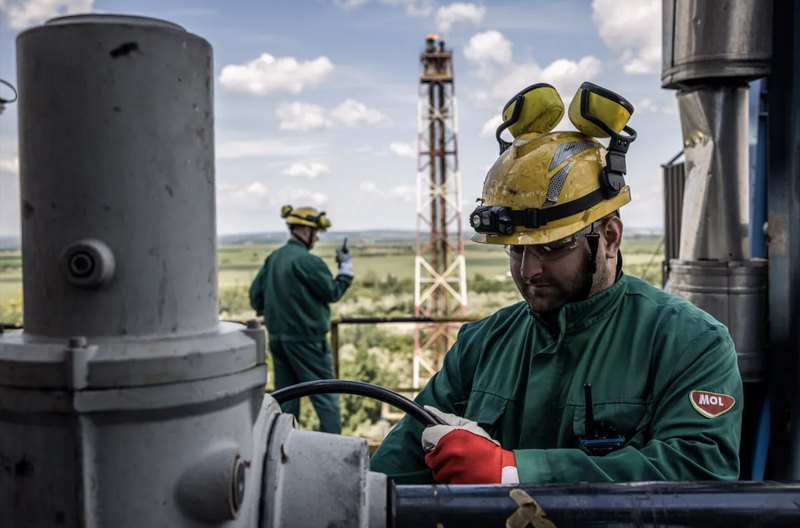
This does not threaten energy security. They have an excellent way to obtain oil through an alternative channel, but they simply do not want to overpay. Of course, this is confidential information, but according to expert estimates, they have a discount of approximately 20 per cent on the price.
This amounts to hundreds of millions, which is fundamentally important to them, and judging by how they are defending this opportunity, they will fight for it to the last penny. Will there be a real refusal? I would be happy if there were.
I don't know if there is a chance that NATO countries, including Turkey, for which 16 billion cubic metres from Russia is not essential but is an important part of diversifying its gas mix, will refuse. That would be a very cool option.
And it would certainly hit Russia hard. Russia would find such actions unacceptable, but I do not really believe that this will happen, for many reasons.
As for how to put pressure on Russia, given the current position of China and India, this can only lead to one effect: a reduction in the sale price of oil and gas. This is certainly good, but it will not be able to completely stop the flow of money.
Another aspect, in my opinion, is even more important. I do not see any real effect of sanctions on the transportation of these products.
There are lists of these tankers, and their movements are being tracked. Unfortunately, all sanctions ended the moment a Moscow plane flew over a patrol ship in the Baltic Sea — and flew away.
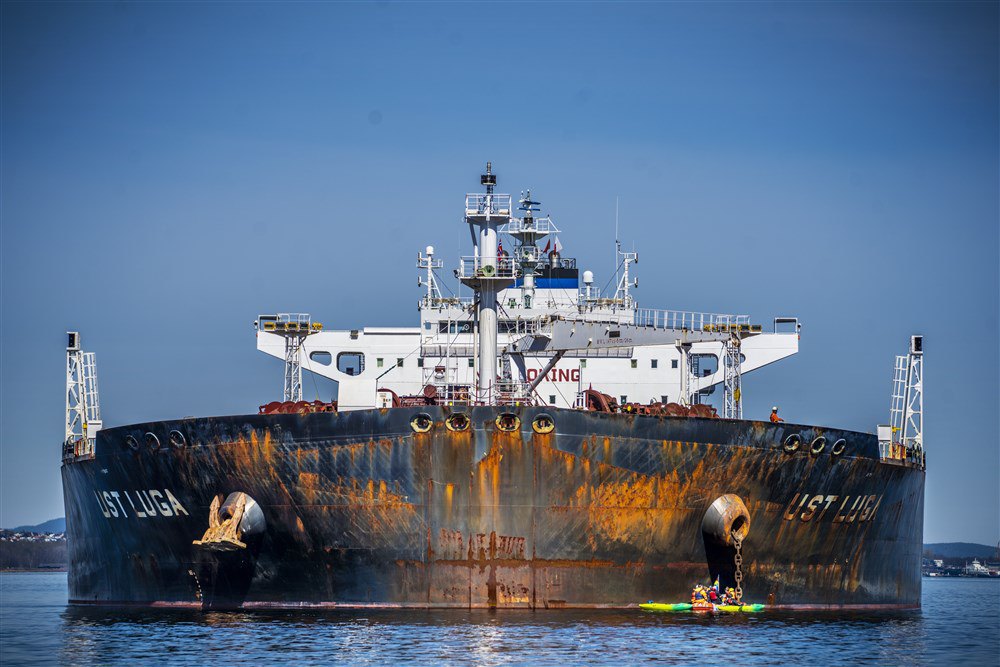
The pursuit of the tanker, which was underway at that moment, was halted, and there would have been a 100% chance of detention because they had forged documents and a forged flag. They are sailing on completely fake documents from a risk insurance perspective. I am very curious to see what will happen if one of them sinks somewhere in the Mediterranean. There will be environmental consequences, but it will be impossible to find the culprit. There will be no insurance claims. Because there will be a fake insurance company that has never actually existed.
Unfortunately, our European partners are not at all ready to deal with this situation because they are afraid. If they deal with this situation in real life, dozens of tankers will be stopped, they will have to be arrested, and there will be a serious escalation of the conflict with Russia. The Kremlin will react instantly. This is very painful for the Kremlin. Therefore, I do not expect this to happen.
How many of these tankers are there? Is it possible to estimate what share of the Russian Federation's budget comes from the shadow fleet?
As for the number of tankers, the latest register listed 673 vessels. It is open. Experts, including Ukrainian ones, constantly update and renew it.
These are not secret tankers, they are known. They can be checked — and half of them will be stopped because they have fake documents. Two tankers were stopped and arrested because they had fake documents. After that, there was an incident in the Baltic Sea when the Russians showed that they would defend them, and that was the end of it.
Russia is very careful to conceal information about its income levels, but we are talking about at least 15-18% of the Russian Federation's total non-military budget.

The Russians have realised that they cannot run the Zaporizhzhya Nuclear Power Plant
What threats does the occupation of the Zaporizhzhya Nuclear Power Plant pose?
I do not see any immediate threat. There is a huge problem with equipment degradation. The Russians have not been able to learn how to operate the plant or fix certain technical issues, and it seems that they will not be able to do so in the near future.
In particular, there is a problem with cooling. It used to be provided by the Kakhovka Reservoir, which no longer exists. The situation with equipment degradation is getting worse.
In addition, the Russians drilled wells to extract at least some water, and as a result, they seem to have disturbed the geology and hydrogeology of the strata directly under the reactors. This does not pose a threat of an explosion like Chornobyl, a terrible disaster, or radioactive contamination. No, there is no such threat today. The station is in cold shutdown.
Today, no one knows what is happening inside the reactors. No station in the world has been in this state for so long. In a situation of extremely limited access to the facility, or rather, no access for the Ukrainian side and very limited opportunities for the IAEA mission to see anything there — they are physically not allowed in. The overall situation is completely unclear.
It is clear that nothing will explode there, that much is certain. As long as they do not try to start it up, no serious negative incidents should occur — provided that it receives external power. It receives this from Ukraine. We are spending 150 MW of power to keep the plant in cold shutdown mode so that the pumps and auxiliary equipment can continue to operate.
The question of what will happen next is actually very complicated. Judging by everything, including Putin's latest statements, they are beginning to understand that they cannot cope on their own. For them, this station is a great asset. Russia has a huge energy problem.
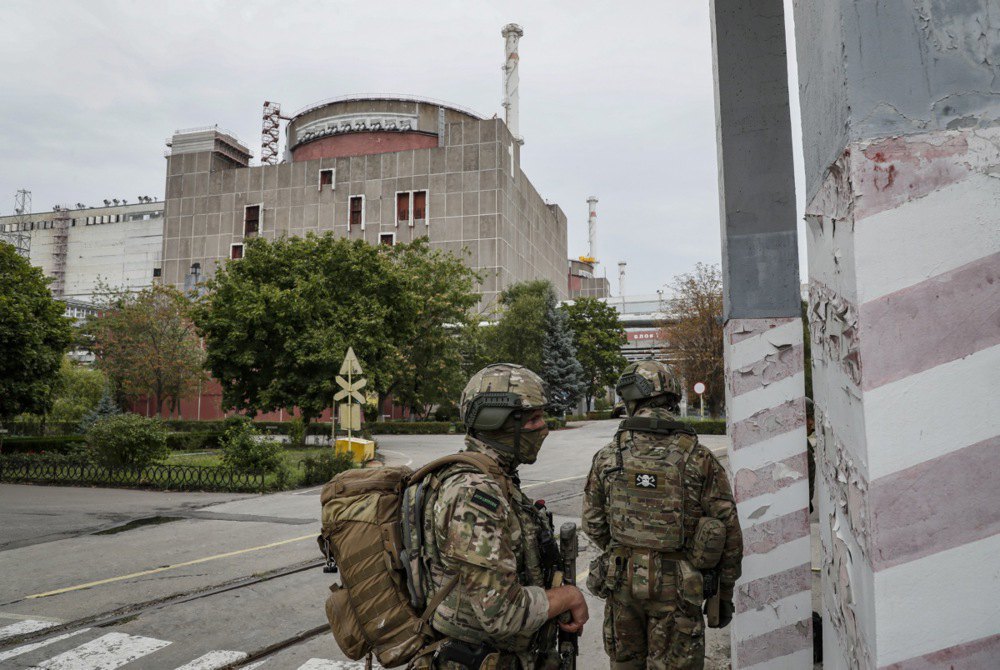
Even though we have not attacked civilian infrastructure — and, frankly speaking, I believe that Ukraine should not attack civilian infrastructure — we are not barbarians or terrorists, unlike the Kremlin regime — they are naturally facing an energy crisis.
They are aware of this. Russia had a huge energy rearmament programme, which was to be implemented from 2004 to 2026. In 2016-17, the Russians admitted that it had failed due to sanctions, because they cannot buy equipment that they do not produce and, accordingly, cannot rearm/re-equip the stations they had planned or build new ones. They simply do not have access to certain types of equipment, and they do not know how to make it. It was manufactured in Ukraine or purchased in Europe.
Neither Europe, Japan, South Korea, nor the United States will supply this equipment. China does not have enough capacity to solve Russia's problems, and certain types of equipment are not manufactured there either.
Therefore, they are in an energy crisis, and the 6 GW facility, which they can add to their European territory as generating capacity, is of enormous importance to them. They want to keep it, but at the same time, they seem to have already realised that they will not be able to manage it.
Judging by recent statements, the first signs that they cannot cope have begun to emerge, but I cannot predict exactly what this will lead to — and I don't think anyone can.
However, one thing is clear: the longer the plant remains in its current state, the less chance there is that it will ever start operating.
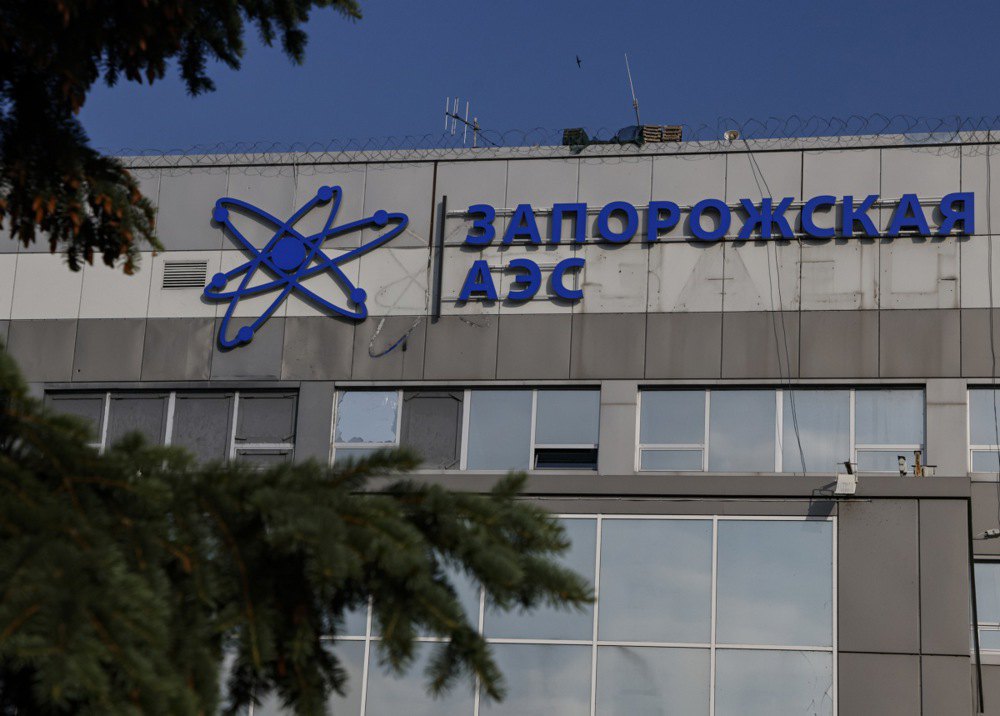
Today, is this nuclear power plant more of a source of potential problems than energy in the hands of the occupiers?
It has existed since Soviet times, but while it was under Ukrainian control, we modernised it significantly together with our American partners. Gradually, Soviet fuel was replaced with American fuel. If it were operating in Ukraine, it would run entirely on American Westinghouse fuel and would not use Rosatom fuel. This modernisation was not limited to changing the type of fuel. There was also an upgrade of software, certain equipment, etc.
The combinations that are supposed to work there now are very different from those that were there when it was built. On top of that, there is the military situation around it, a shortage of personnel and sanctions. People who go there are automatically subject to personal sanctions, so very few Rosatom employees want to go there, even under pressure.
Today, we have a very simple result: the Zaporizhzhya nuclear power plant is standing still. The tools to start it up have not appeared. We have successfully resisted attempts to reconnect it to the Russian energy system, and these attempts are currently blocked. At least until the fighting stops, we can be almost certain that it will not be connected and will not operate in the Moscow energy system.
What will happen next is impossible to predict at this point. Especially since there are certain international rules, there is the IAEA, a bunch of different parameters that influence this. And to be honest, I think that if the front line is frozen, then it will stay that way.
What signs of the energy crisis in the Russian Federation are possible in the coming years?
They have blackouts without any shelling in the Far East and in Siberia. They care a lot about the European part, where Moscow, St. Petersburg are located. They can sacrifice everything else, but they will take care of this part. Therefore, it is not true to say that in five years they will be in the dark.
At the same time, it is very difficult for them to launch new enterprises that consume a lot of electricity — they have not been launched for several years because there is simply nothing to power them. And processes have already begun where every two or three months there is news of a blackout in another region.
The problems in Russia's energy sector are growing, but it is not a situation where they will be without electricity in three years. No, they will have electricity. The question is whether their economy will be provided with the amount of electricity it needs — and here we can say "no" with almost complete certainty.

Most likely, we will collect the planned amount of gas before the heating season, despite the blows to production
Is there any certainty that Ukraine will have sufficient gas reserves in underground gas storage facilities before the heating season?
The situation is quite clear. The government has announced that 13.2 billion cubic metres of gas should be accumulated for the heating season. Is this enough? According to the lower norm, yes.
This is not what we would like to have in order to sleep peacefully and not be nervous. Logistical disruptions occasionally limit the use of coal for electricity generation at coal-fired power plants, and then certain units use more gas. If the disruptions continue, it is quite possible that we will use more gas for electricity generation. Then this amount is indeed a limiting factor.
The good news is that we will most likely collect the planned amount of gas before the heating season, despite the disruptions to production, which have deprived us of at least 500 million cubic metres this year.
Naftogaz is actively working with partners, has received preferential financing from the EBRD and grants from the Norwegian government, and is about to receive funds from the EIB. We are very grateful to our partners — this is a truly critical situation.
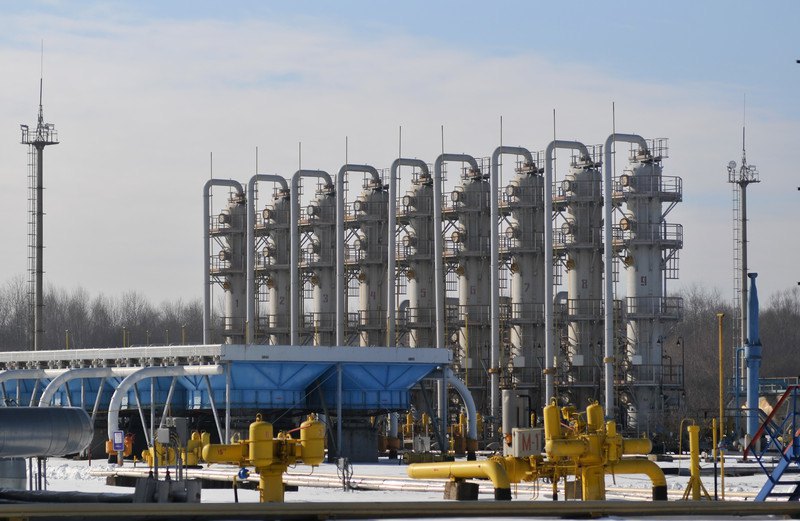
I do not foresee any problems with us not having enough gas. This is because we have such a great advantage as good integration and a large number of connections between the Ukrainian gas pipeline system and the European one. If there really is a critical situation when additional gas is needed to maintain pressure, we can get it from Europe without any major problems. Technically, there will be no problems.
Could Hungary or Slovakia exert political influence on this?
Firstly, this is regulated not by national legislation, but by European legislation. I want to see the consequences for Slovakia or Hungary if they try to block anything, because this is a direct violation of all possible European Union rules and directives. It is clearly stated that you cannot prohibit such transportation, and there are serious penalties for doing so.
Secondly, we have sufficient capacity, even if they try to do something. There is still Poland and Romania, so I do not expect any problems.
However, Putin called on Budapest and Bratislava to respond accordingly to the attacks on the Druzhba oil pipeline.
They understand one simple thing: as soon as they try to do something, they will lose money — and they make very good money on this. For Slovakia, this is a sensitive issue: cutting off anything in the Ukrainian direction means leaving themselves without a very significant slice of the pie. For Hungary, it is less so, but still. Hungary is always first in line when it comes to selling something to Ukraine; they really like to make money on this. Therefore, loud political statements are one thing, but reality is quite another. To be honest, I am very sceptical about any real steps being taken.
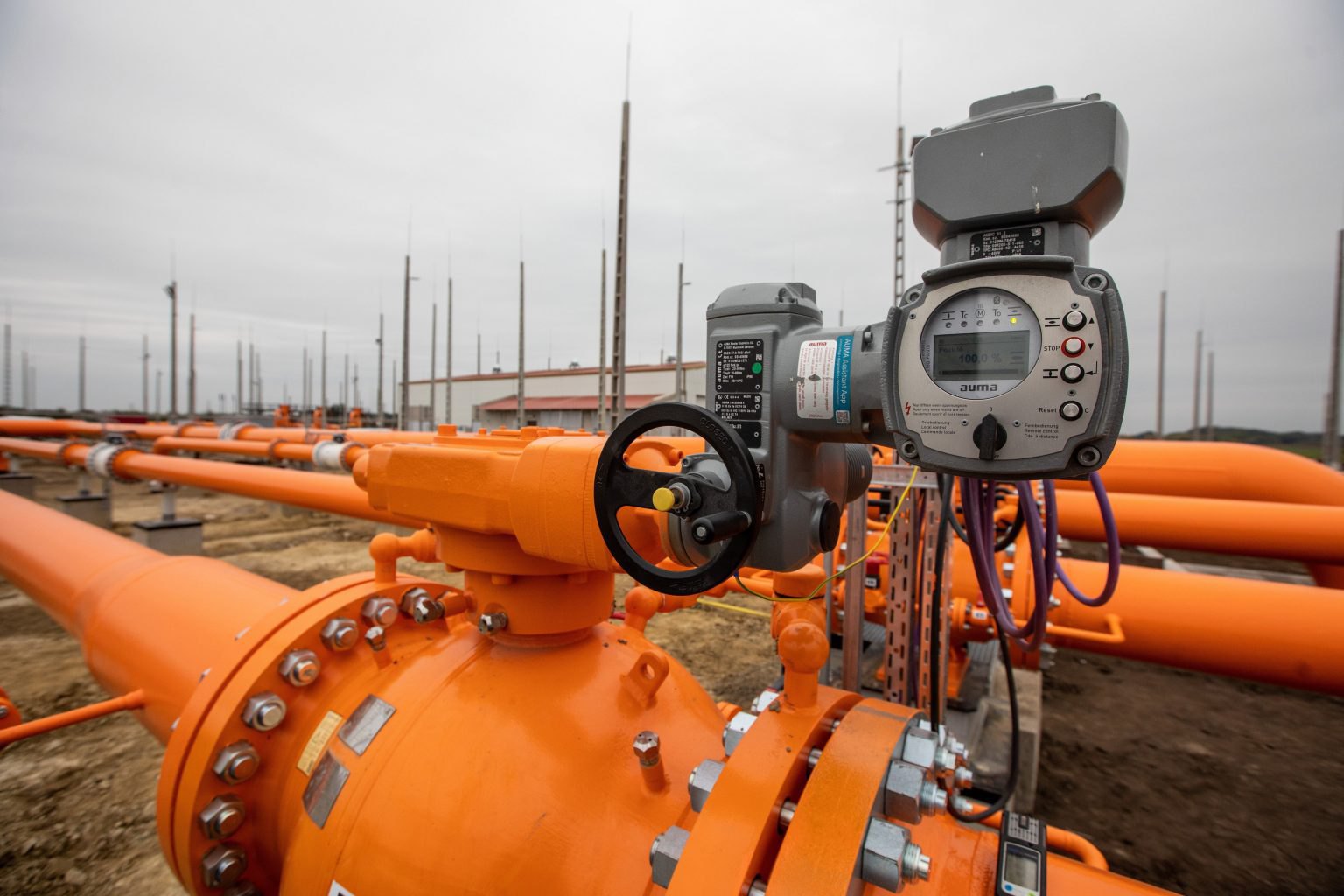
Is it possible to expand the capacity of the Ukrainian power system at this time?
Work is ongoing on the electricity sector. We are limited to 2 GW in electricity imports, which is a little too little for us. Ukrenergo, which is responsible for this, has been working continuously in recent years to expand this connection and physically build certain additional lines. Three large projects are currently in the implementation stage, and they are progressing well.
It will take another 2-4 years to complete them, but after that we will have not 2 but 4.5 GW of connections — and that is a very strong position.
As for gas, I cannot think of why we need more connections. The Poles are interested in supplying gas through Ukraine to certain regions of their country, and from time to time they try to lobby for a 110-kilometre gas pipeline between Ukraine and Poland, but this is more in Poland's interest than Ukraine's.
It is really important for people to have a plan B in case we are left without heat.
What advice would you give to end consumers in preparation for winter? What scenarios should they prepare for?
I am absolutely certain that you should always prepare for the worst-case scenario, and then hope that it does not happen. I have carried out a full preventive maintenance check on all my energy security equipment. I have a battery inverter installed, and I have checked it. I know that my energy security system is under control and everything is fine with it.
In fact, I am sure that most Ukrainians already know very well how to comfortably cope with power outages in each individual case. People made up their minds a long time ago. Some bought an EcoFlow, some decided that a power bank and fairy lights were enough to keep the lights on, and some installed a battery inverter and fully equipped their apartment so that they wouldn't even notice when the power went out.
It should be understood that in many regions, power cuts have never stopped. In the zone approximately 100 kilometres from the line of combat, attacks on energy facilities are constantly taking place. There are constant power cuts associated with this. It's just that most of Ukraine doesn't notice them. People living in Sumy, Okhtyrka, Zaporizhzhya, and Kryvyy Rih will say that the situation is not as rosy as one would like.
There is a very high risk that the Russians will attack the heating system. There are cities where this risk has already been realised. For example, heating facilities have already been attacked in Odesa and Kryvyy Rih.
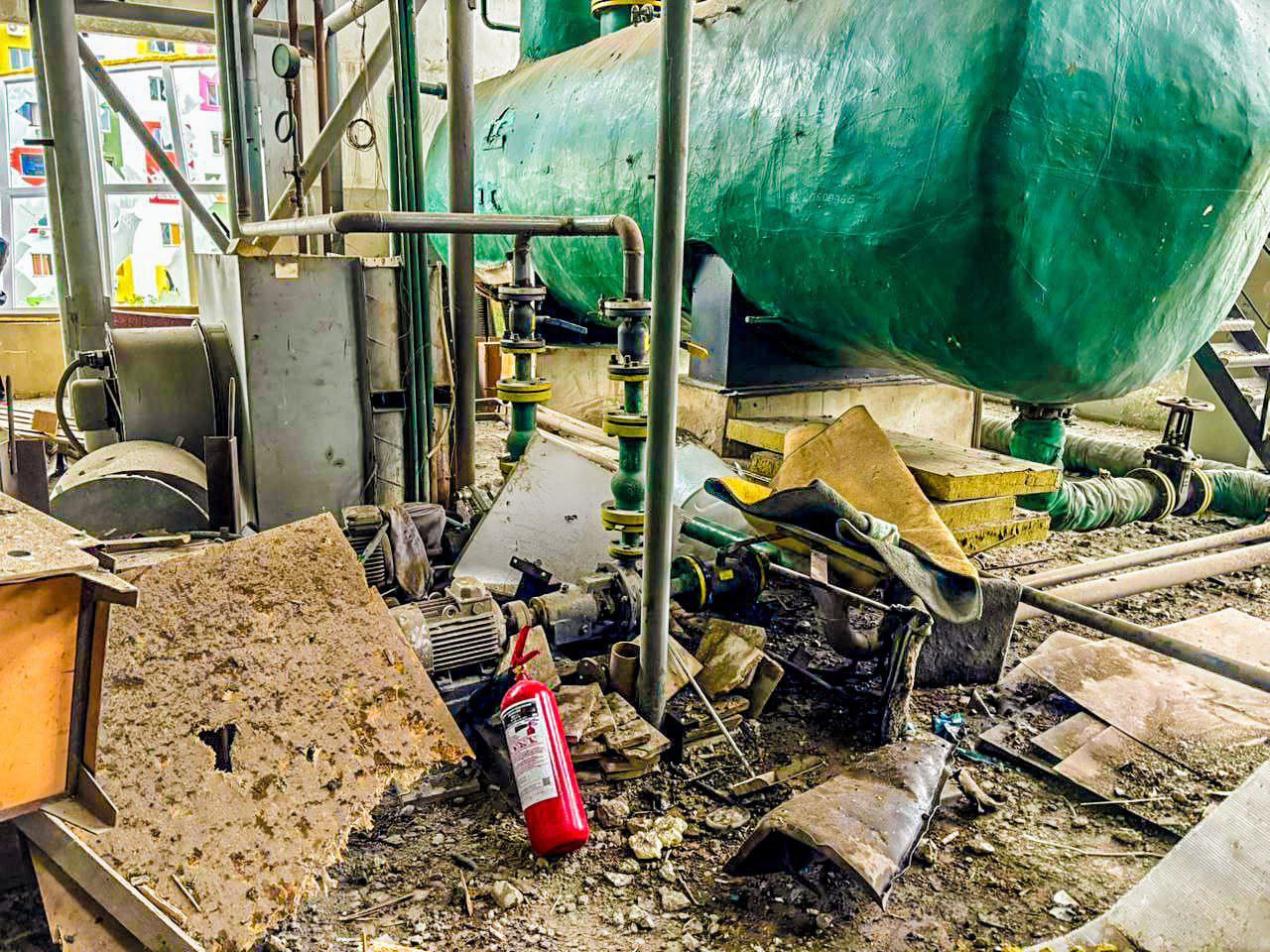
The situation in Kryvyy Rih is dire. The city is unique, it is very long, and last year they had huge problems with heating. 450 buildings were not connected to the heating system. Unfortunately, the risks are also very high this year.
In Kharkiv, such attacks occur constantly. In Sumy and Okhtyrka, local boiler rooms that supply heat have already been destroyed twice.
There are many risk factors. In addition to preparing for possible power outages, local authorities are preparing for possible attacks on the heating system. I cannot say that I know of any city where people are not preparing. Some are better at it than others, but everyone is preparing. They are thinking about how to ensure power supply to critical facilities if they are destroyed here or there. We must give credit where credit is due — the planning is underway.
It is really important for people to have a plan B in mind in case we are left without heat: what to do to ensure that a particular house, regardless of whether you live in an apartment building or a private house, does not freeze if something happens. This applies to simple things: windows, entrances, roofs, backup heat sources. Everyone needs to look at their own situation here, but such a risk objectively exists.
How critical is the level of payments for utilities provided to the population for the financial condition of enterprises?
I see almost no problems with payments by the population. Most Ukrainians diligently try to pay for what they have. There are people who left, left their apartments, and did not pay for a year because they did not even have the physical ability to do so. Now they have found out that they have debts and are thinking about how to pay them off. There are certainly plenty of such examples.
A much bigger problem is that we have an opaque, inefficient structure of tariffs and market prices throughout the energy sector and critical infrastructure, which leads to extremely negative consequences. Cross-debts have long exceeded 64 billion hryvnyas and now total 164 billion hryvnyas. They are constantly growing, and everyone is in a constant state of crisis. The situation is indeed very critical, and I am sure that something will have to be done about it over the next year or year and a half’s








